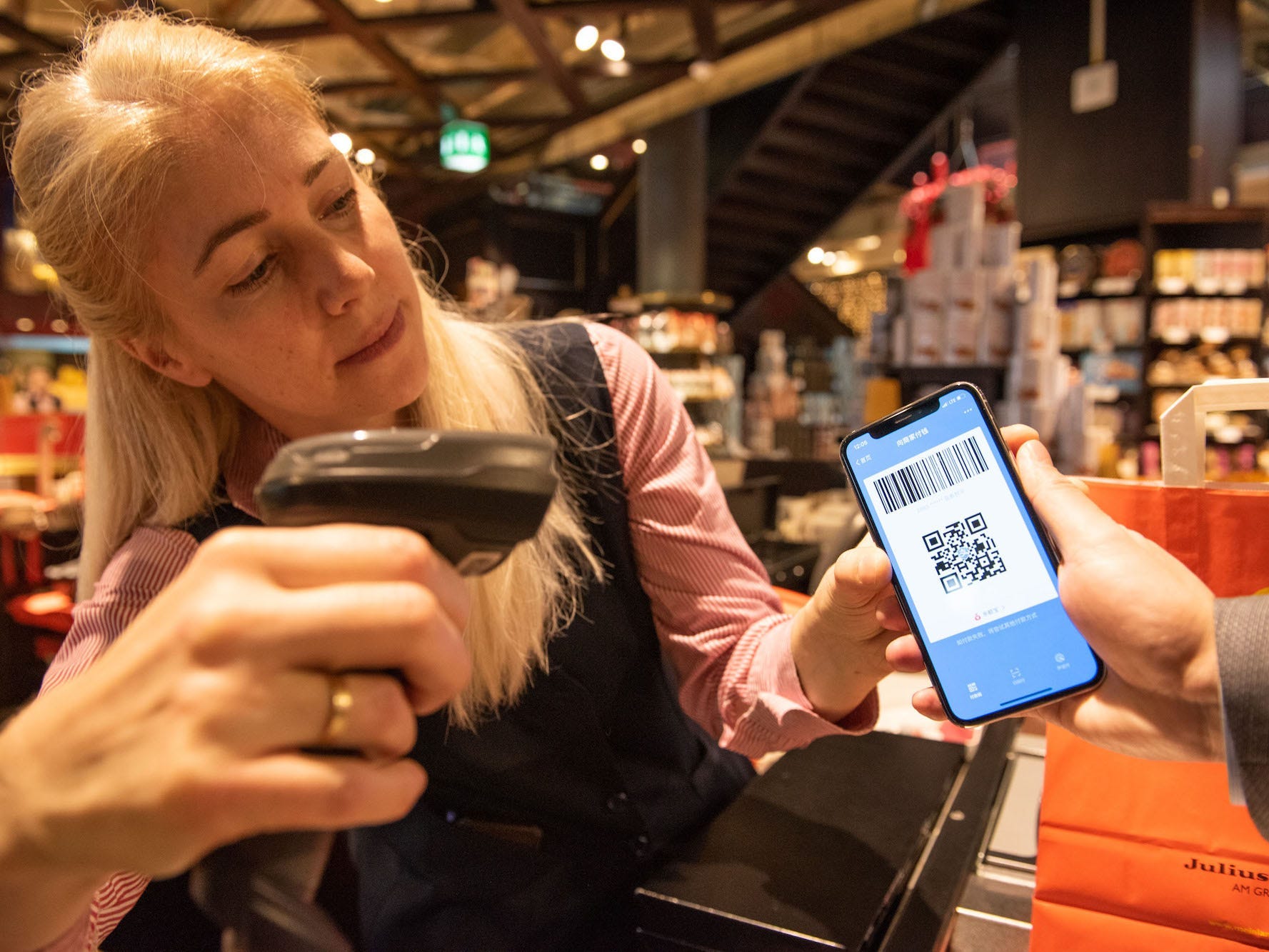
Guo Chen/Xinhua via Getty) (Xinhua/Guo Chen via Getty Images
- President Donald Trump has signed an executive order banning Alipay, WeChat Pay, and six other Chinese apps.
- The order raises the possibility that the apps could track Federal employees and “build dossiers of personal information,” calling the apps a threat to “the national security, foreign policy, and economy of the United States.”
- The order will go into effect 45 days after it’s signed, which will be after Trump has left office.
- The latest ban follows earlier Trump administration bans of the apps WeChat and TikTok, neither of which has gone into effect.
- Visit Business Insider’s homepage for more stories.
President Donald Trump signed an executive order Tuesday banning Alipay, WeChat Pay, and six other Chinese apps, calling them a threat to national security.
The executive order prohibits any transactions on the apps Alipay, CamScanner, QQ Wallet, SHAREit, Tencent QQ, VMate, WeChat Pay, and WPS Office, calling them a threat to “the national security, foreign policy, and economy of the United States.” The order raises the possibility that the apps could track federal employees and “build dossiers of personal information.”
The order will go into effect 45 days after it’s signed, which will be after Trump has left office.
Alipay, a consumer finance app owned by Jack Ma’s Ant Group, says it has 1.3 billion users annually, with the majority of them based in China. The digital wallet app has expanded over the years to allow users to pay bills, hail a taxi, and make doctors appointments.
Alipay and WeChat Pay, the payments arm of messaging app WeChat, are the most-used payments apps in China. QQ, a popular instant messaging app, and its payments service, QQ Wallet, are owned by WeChat parent company Tencent and are also included in the ban.
The latest ban follows an executive order by the Trump administration earlier this year that banned the apps TikTok and WeChat from US app stores. The ban was a result of months of scrutiny from US lawmakers, who felt the apps' ties to China - TikTok was created by ByteDance while WeChat is produced by Tencent, both Chinese firms - made them security risks for US users.
Read more: While you weren't looking, everything with China went off the rails
The attempted ban on WeChat is currently hitting legal roadblocks and is unlikely to be implemented anytime soon, while the TikTok ban has been blocked by two federal judges. The attepted ban on TikTok also resulted in a new, US-based TikTok business backed by US investors, including Oracle and Walmart.
The app bans are part of a larger Trump administration crackdown on Chinese businesses. Last month, the Trump administration added dozens of Chinese firms, including drone-maker DJI and chipmaker SMIC, to the US government's entity list, an economic blacklist that places tight restrictions on the listed companies.
The Trump administration also nudged the New York Stock Exchange to delist three Chinese firms: China Mobile, China Unicom, and China Telecom. After reversing course once on its decision, the NYSE said Wednesday it plans to move forward delisting the companies.

